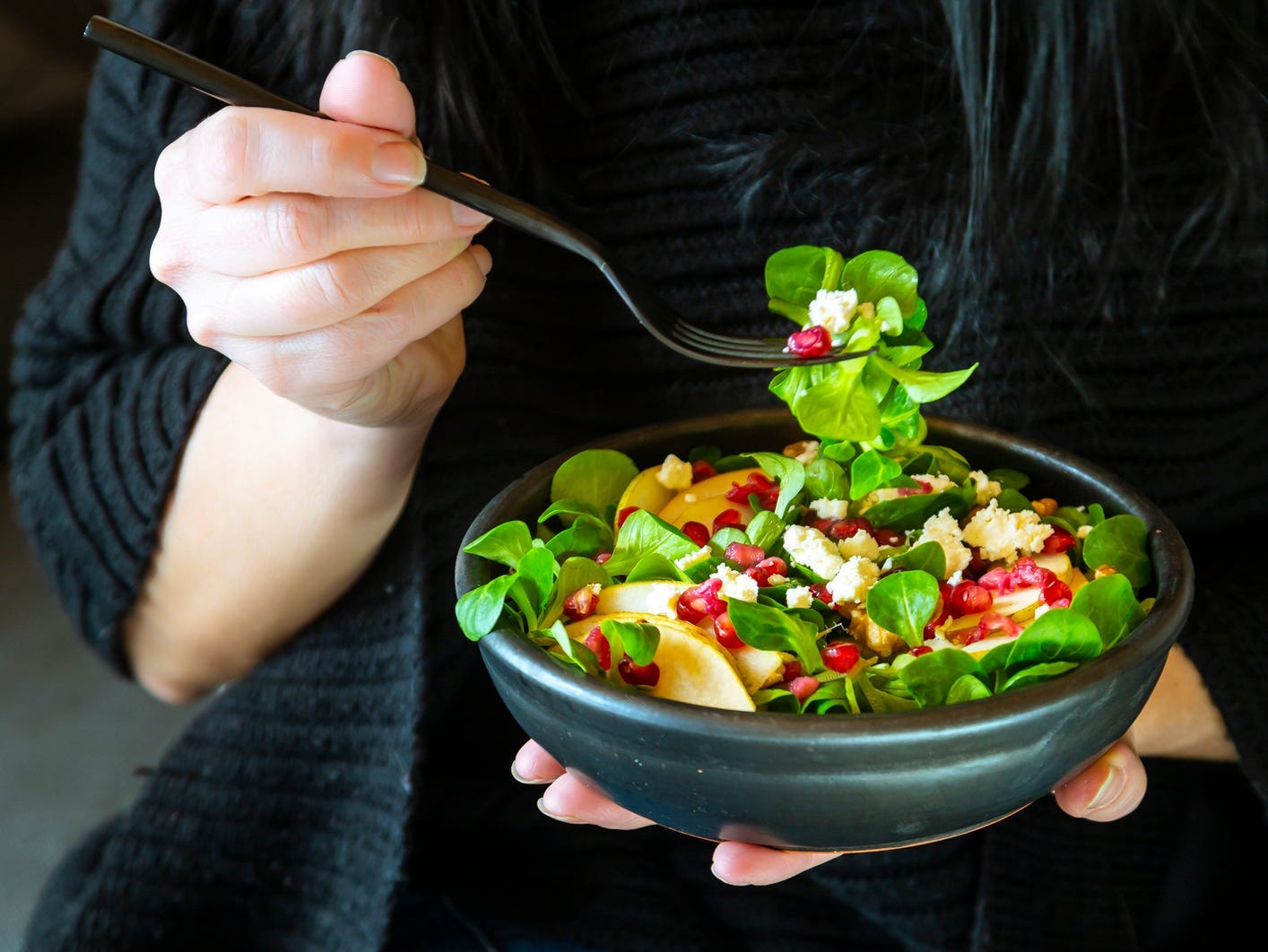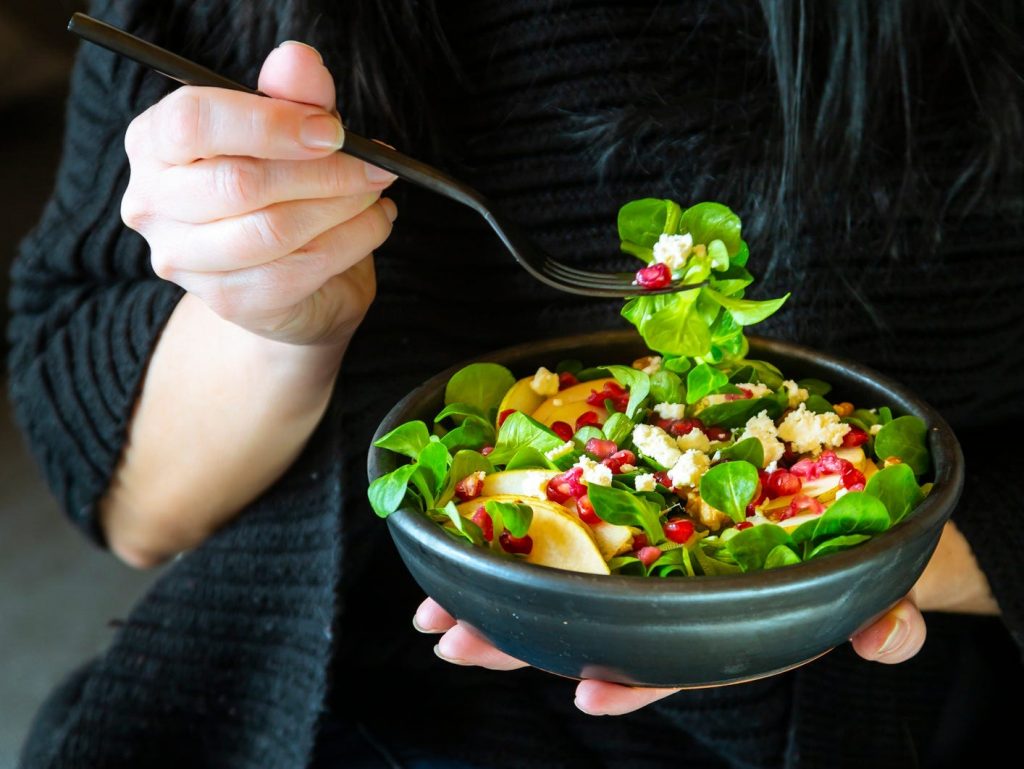
Westend61/Getty Images
- To eat healthily, protect your liver and feed your gut, says endocrinologist Dr. Robert Lustig.
- Cut back on sugar and processed foods and eat more fiber-rich nuts and greens for optimal gut health.
- Evidence suggests this approach may reduce the risk of chronic illnesses like heart disease and cancer.
- Visit Insider's homepage for more stories.
After years of treating patients with diet-related diseases, pediatric endocrinologist Dr. Robert Lustig is fed up with our obsession over calories – sometimes making us favor low-calorie processed foods over high-calorie whole foods.
He told Insider that he used to believe the old adage "you are what you eat," but not anymore.
"What I've now realized is that I got it wrong. You are what they did to what you eat," he said.
In his new book "Metabolical," Lustig examines the industrialized food system and its impact on health. Lustig recommends cutting out all ultra-processed snacks and meals, since they've been stripped of nutritional value and loaded with harmful additives.
His guidelines for healthy eating support gut and liver health by sticking to a diet of whole, unprocessed foods like veggies, nuts, lean proteins, and avoiding added sugar and junk food.
Cut back on added sugar
The first part of Lustig's mantra, protect the liver, primarily involves watching your sugar intake. Sugar is processed through the liver, and too much of it can cause stress and damage the cells due to a buildup of chemical byproducts, increasing the risk of liver disease, heart disease, and metabolic issues.
Refined carbohydrates can also be problematic, since these are also broken down into glucose, or simple sugar, by digestion.
Lustig said that high-fructose corn syrup, common in processed foods, is the biggest culprit, but research is still mixed on this point.
Eat more nuts and leafy greens
The second part of Lustig's strategy for healthy food is to feed the gut. Fiber, a nutrient found in plant foods like veggies, fruits, seeds, and nuts, is an essential part of a gut-friendly diet, he said.
Fiber helps feed trillions of friendly bacteria that live in your digestive system, known as the gut microbiome. There's some evidence that if they're starved of fiber, those bacteria may start to feed on your intestinal lining instead, breaking down healthy layers of mucus and leading to digestive diseases.
Getting enough fiber is linked to benefits like a healthy weight, stable metabolism, and lower risk of disease. Eating plans like the Mediterranean diet, which consists of fresh veggies, whole grains, and fish, are ranked among the healthiest ways to eat.
Get enough omega 3 fatty acids
Nuts were often demonized by diet culture and mainstream nutrition because they're high in fat and calories.
But Lustig said such narratives dismiss the nutrional value of nuts. He argues that we should stop thinking about calories entirely, and focus on liver and gut health instead.
"Nuts used to be thought of as unhealthy, but they're one of the best things you can put in your mouth," he said.
Similarly, eggs and fish are nutritional powerhouses, but also high in fat. These foods are a source of essential nutrients like omega-3 fatty acids, which Lustig said many Americans lack in their diet.
Avoid processed food
The antithesis of healthy food, according to Lustig, is anything that's high in sugar and low in fiber. That includes most processed foods, made with preservatives to elongate shelf life.
Previous studies have found processed food is linked to health issues like heart disease and cancer, and can cause us to overeat by as many as 500 calories a day.
If you steer clear of those foods, and get some fiber, it doesn't matter if your diet is low-carb, plant-based, or something else, according to Lustig.
"All I can say is if it protects the liver and feeds the gut, it probably makes sense," he said.
